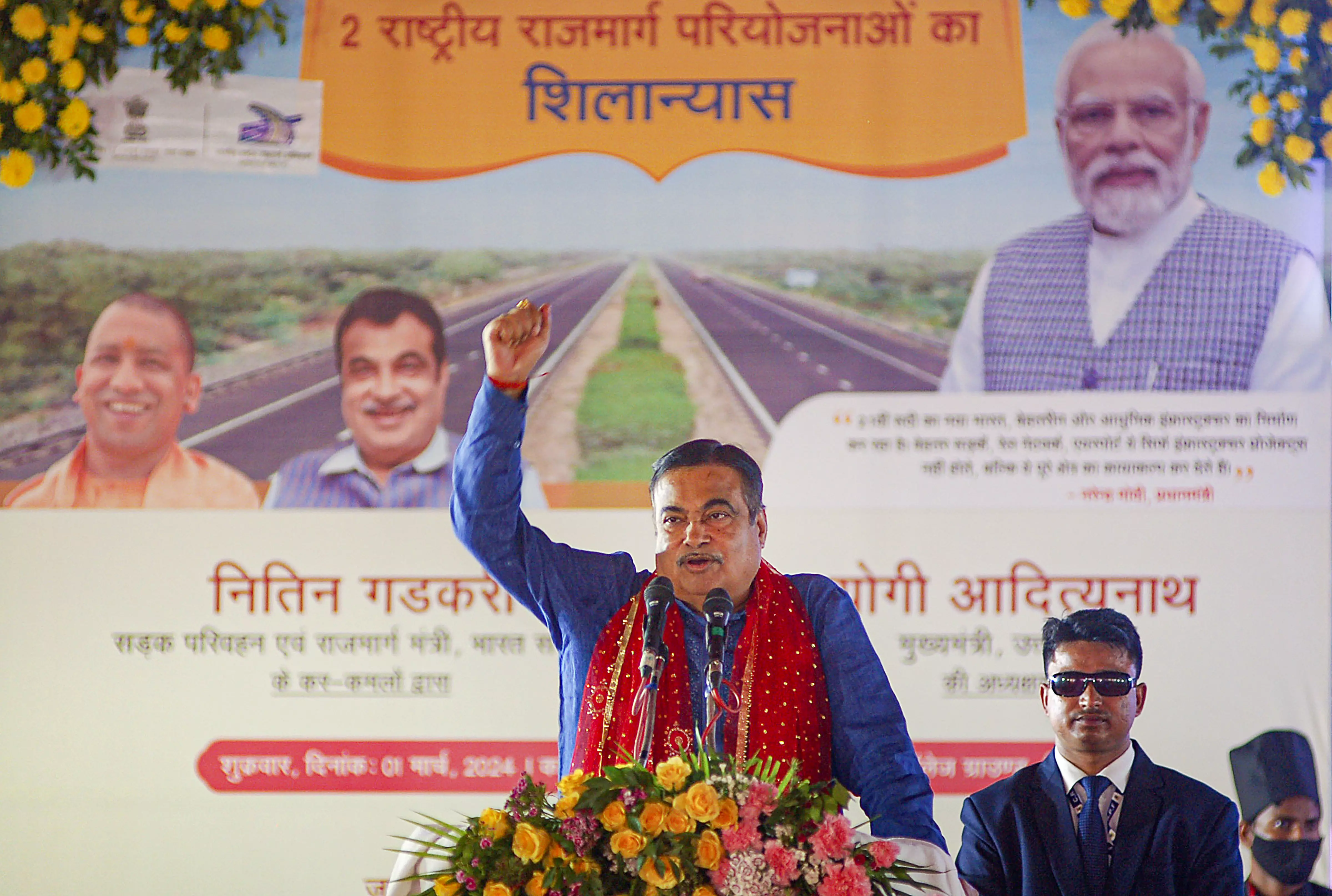
Union minister for road transport and highways Nitin Gadkari. File photo: PTI
Existing toll system to end soon, Nitin Gadkari says again
The Union minister says through the new system both time and money can be saved.

The government will soon end the existing toll collection system for vehicles and introduce a satellite-based toll collection system where the toll amount would be deducted from a user’s bank account, Union Minister for road transport and Highways (MoRTH) Nitin Gadkari has said.
According to Gadkari, as per the new system, tolls will be charged as per the distance you have travelled ("Pay as you use"). Gadkari's remarks come just few days before the Lok Sabha elections.
“Now we are ending toll and there will be a satellite-based toll collection system. Money will be deducted from your bank account and the amount of road you cover will be charged accordingly. Through this time and money can be saved. Earlier, it used to take 9 hours to travel from Mumbai to Pune, now it is reduced to 2 hours...,” Gadkari told news agency ANI on Wednesday (March 27).
Last month in the Lok Sabha, Gadkari said that the government has appointed a consultant to provide advisory services on the implementation of new technologies like Global Navigation Satellite System (GNSS) based barrier less free flow tolling.
It has been decided to Initially implement GNSS-based Electronic Toll Collection (ETC) System at selected sections of National Highways on a pilot basis as an added facility along with FASTag.
In December 2023 at an event in Delhi, Gadkari had said a GPS-based toll system would be implemented in India from March 2024.
“The government is looking at new technologies, including GPS-based toll systems to replace toll plazas in the country… we will start new GPS satellite-based toll collection across the country by March next year,” he had said.
In December 2020, Gadkari had said that the government had finalised GPS-based (Global Positioning System) technology toll collection to ensure seamless movement of vehicles across the country.
Back then, he said, this will ensure India becomes ‘toll booth free’ in next two years.

